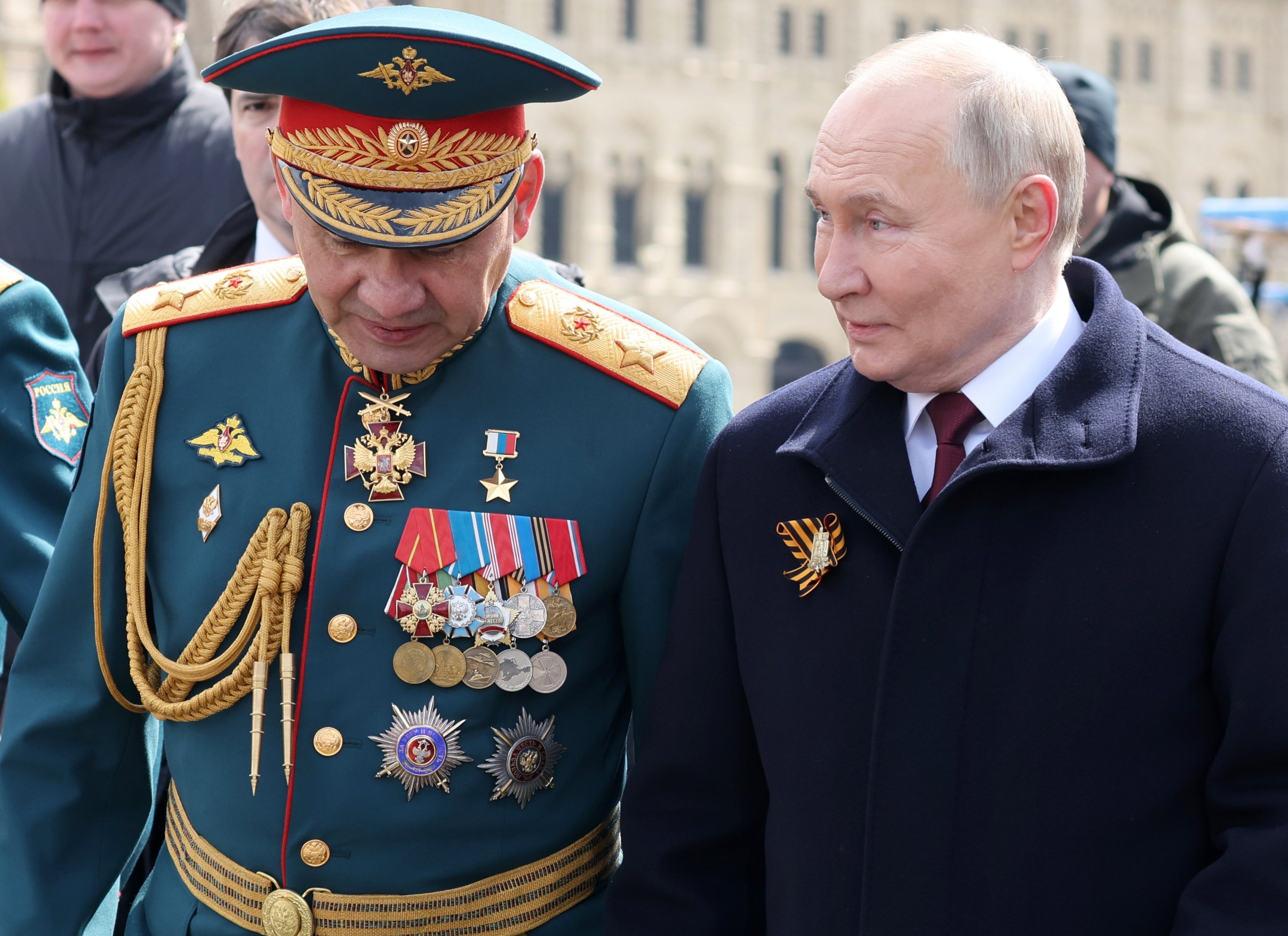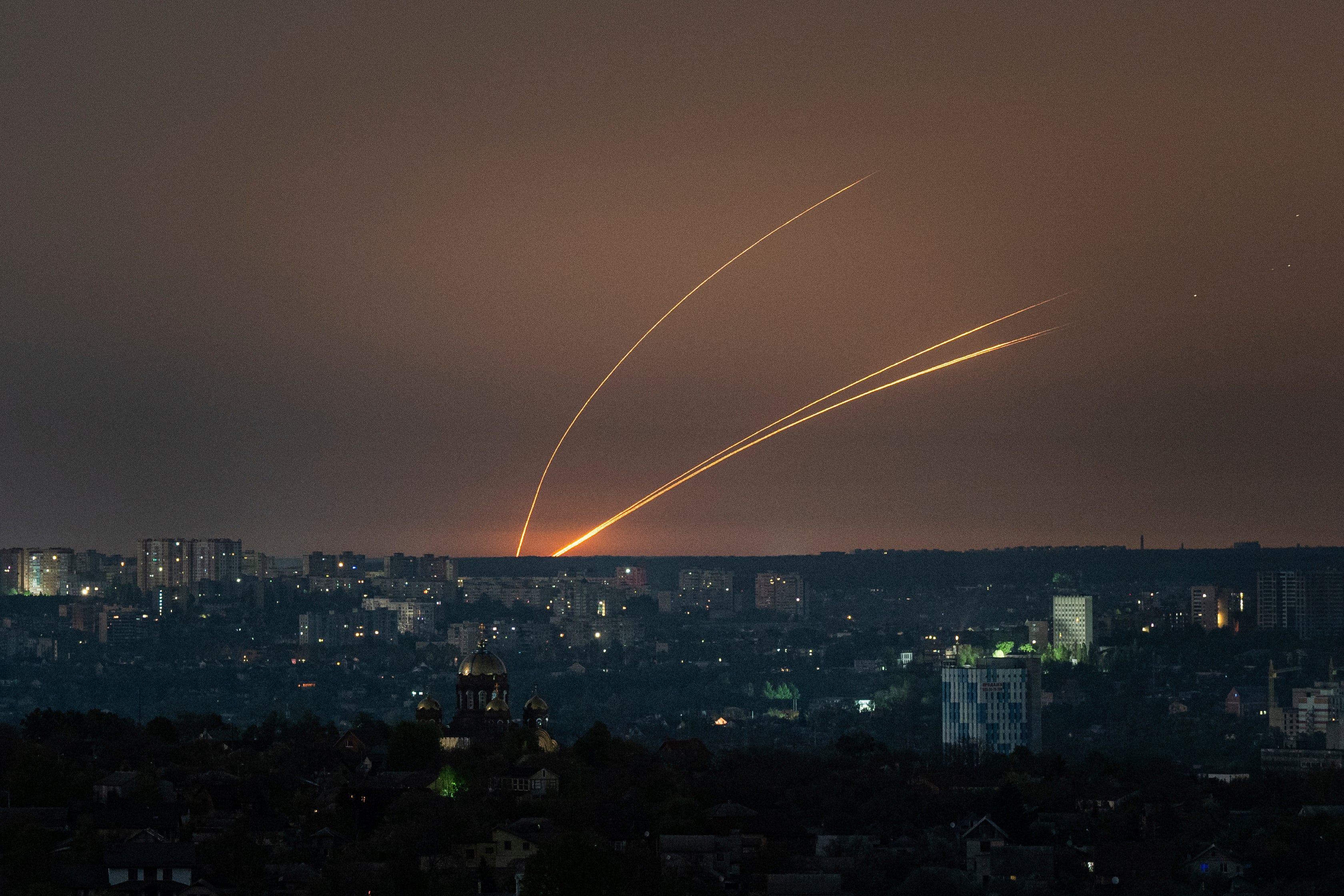Putin’s surprise decision to replace his defence minister raises as many questions as it answers
Yevgeny Prigozhin, the dead former chief of the Wagner mercenaries, has had the main aim of his attempted coup fulfilled from beyond the grave, writes Kim Sengupta. But it may not be the end of the changes the Russian president makes as he seeks to seize the advantage in Ukraine


From beyond the grave, Yevgeny Prigozhin has had one of the main aims of his attempted coup fulfilled. Russia’s defence minister Sergei Shoigu, one of the Wagner chief’s hate figures, has been removed from his post.
The bitter complaint from Prigozhin and his ally at the time, the Chechen warlord Ramzan Kadyrov, was that Shoigu and his bureaucrats were among those culpable for the shortcomings which saw Ukraine claw back land lost in Vladimir Putin’s invasion.
Shoigu’s sacking was greeted with elation by Russia’s warhawks, the “Z-Patriots”, with Konstantin Malofeyev, describing it as pure “Easter joy” (Orthodox Easter took place last week) and declaring that the move showed that, for president Putin, defence was “becoming the absolute priority of all state policy”.
The first deputy prime minister, Andrey Belousov, taking over from Shoigu, has a background in economics, and one interpretation is that this means that Russia is going full steam towards becoming a “war economy” and the Kremlin is preparing for the longest haul in the conflict.
But Russian ammunition production, aided by procurement from countries like Iran and North Korea, has already improved considerably over the course of the campaign, and the West is having difficulty at present matching the supply for Ukraine.
Neither Shoigu, with a background in construction, or his predecessor Anatoly Serdyukov, who was in commercial marketing, were military men. And being in the forces is not a prerequisite for getting the defence portfolio, as, for instance, Grant Shapps proves.

Nor is the war going badly for Moscow at present, as the advances in the Donbas and the new front near Kharkiv show. Shoigu, as some Russian reports indicate, may just have made too many enemies, his performance in the early part of the campaign was poor, and president Putin decided it was time to move him on.
This is not to say that economics was not part of the calculation in the Belousov appointment. Dmitry Peskov, the Kremlin spokesperson, spoke of the need for “innovation”. Defence spending has risen to no less than 6.7 per cent of Russia’s GDP since the start of the invasion, returning to the coldest time of the Cold War.
Shoigu remains a part of the defence establishment as the new secretary of the Security Council of Russia. And this brings one of the most intriguing aspects of the reshuffle – what happens to the man he is replacing, Nikolai Patrushev, who has presented himself as an implacable adversary of the West?
Patrushev, who had been in the post since 2008, had built up a power base while remaining an erstwhile ally of Putin. He had expanded his role to become, in effect, the overseer of national intelligence.
Patrushev was also an avid advocate of the Ukraine invasion. Russian intelligence about Ukraine, with the central premise that Ukrainians will welcome “liberation” from a “neo-nazi” regime in Kyiv, proved to be disastrously wrong. Is the Kremlin closing another chapter of “lessons learned” from the war?
There is no indication at present about what will happen to Patrushev. No obvious position seems available right now. But it seems unlikely that such a prominent figure will simply disappear from public life.
It also remains to be seen whether changes follow in the military command. There have long been rumours that the chief of general staff, General Valery Gerasimov, another Prigozhin target, may be moved on. Hardline nationalists accuse him of not being vigorous enough in conducting operations and lobbying for his removal.
General Sergei Surovikin, who was handed the moniker “General Armageddon” for his actions in Syria, was once a favourite among the possible successors mentioned. The defensive shield he established in Ukraine, the “Surovokin Line” ensured that last summer’s counteroffensive by Kyv’s forces failed.
Surovokin, however, was deemed by the Kremlin to be insufficiently condemnatory of the Wagner plot. There were accusations even that he gave it tacit support. So the general may have to spend some further time in penance before any promotion takes place.
Eleven months after his attempted coup and nine months since he and Wagner’s senior echelon were eliminated when their plane was blown up out of the sky, the shadow of Yevgeny Prigozin continues to linger on Russia’s military horizons.
Join our commenting forum
Join thought-provoking conversations, follow other Independent readers and see their replies
Comments
Bookmark popover
Removed from bookmarks